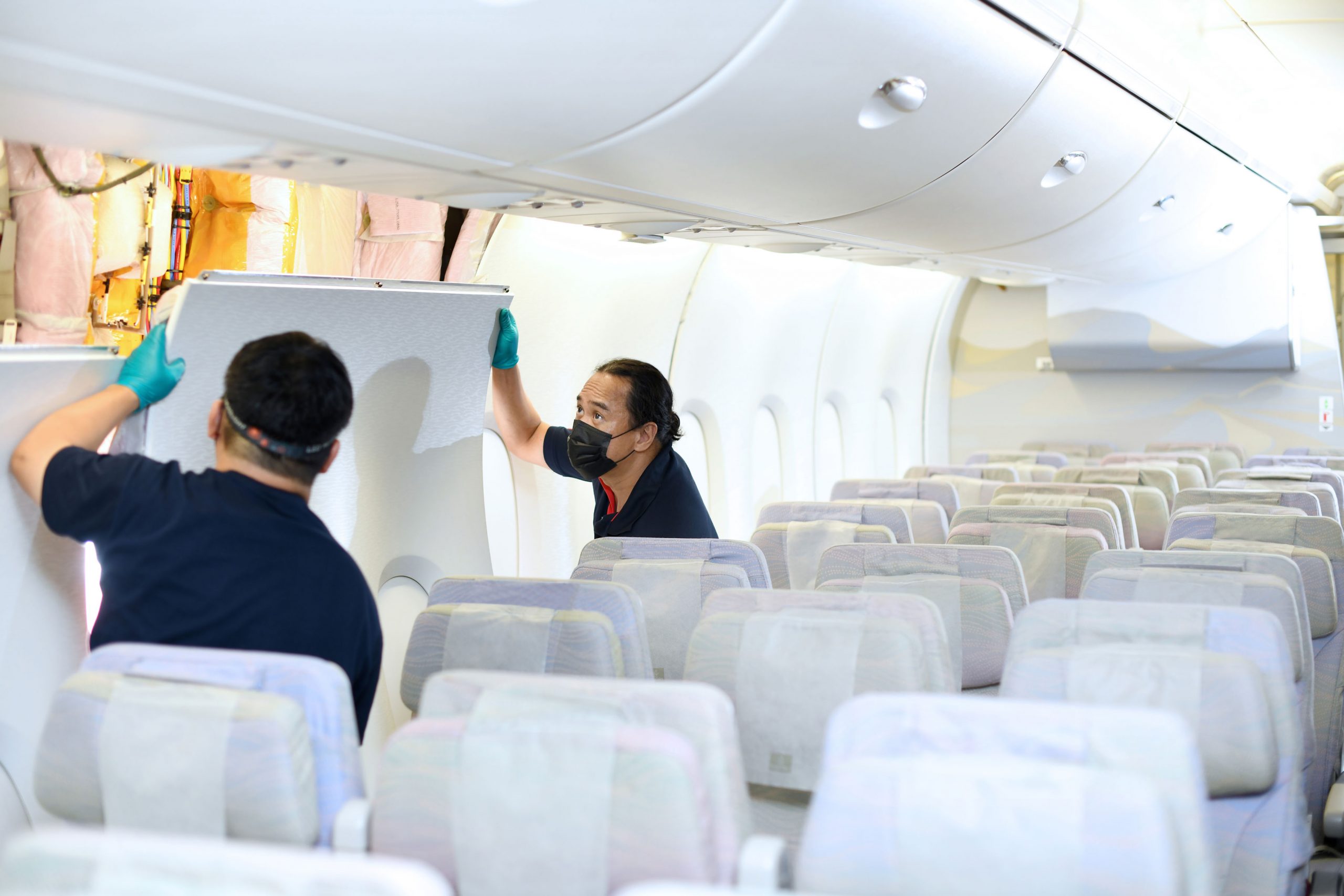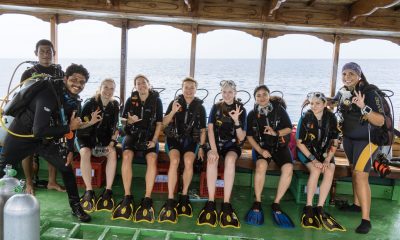International
How South Korea turned an urban planning system into a virus tracking database

SEOUL (Reuters) – When a man in Seoul tested positive for the new coronavirus in May, South Korean authorities were able to confirm his wide-ranging movements in and outside the city in minutes, including five bars and clubs he visited on a recent night out.
The fast response – well ahead of many other countries facing outbreaks – was the result of merging South Korea’s already advanced methods of collecting information and tracking the virus into a new data sharing system that patches together cellphone location data and credit card records.
The Epidemic Investigation Support System (EISS), introduced in late March, effectively removed technological barriers to sharing that information between authorities, by building on the country’s ‘Smart City’ data system.
That platform was originally designed to let local authorities share urban planning information, from population to traffic and pollution, by uploading data in Excel spreadsheets and other formats. Now it forms the foundation for a data clearing house that has turbocharged South Korea’s response to the virus.
While personal location and credit card data has been available for use by South Korean health investigators for years, previous systems required physical paperwork to request the data before it was uploaded to analytical software. That took investigators about two to three days to gather a patient’s personal data to trace their contacts.
The new system digitizes the entire process, including the requests, and can reduce that time to less than an hour, officials say. Investigators can use it to analyse transmission routes and detect likely infection hotspots.
The system has had some teething problems, and has attracted criticism on privacy grounds, but it has been a major factor in the East Asian nation of 52 million keeping virus infections at a relatively low 11,122, as of Thursday, with just 264 deaths.
It got its first test with an outbreak in May, traced to the Itaewon district of Seoul known for its nightlife, which ended up infecting at least 206 people.
“Faster epidemiological survey means faster discovery of potential patients, which helps contain the spread of the virus even when there’s a massive cluster of infections or people who are asymptomatic, as we’ve seen in the nightclub outbreak,” said Yoon Duk-hee, director for infectious disease management in Gyeonggi Province, a densely populated region near Seoul.
Yoon said she and other authorities used the EISS to trace the movements of the first person detected in the Seoul nightclub outbreak, as he visited a number of places including two nightclubs and three bars.
The system is still reliant on humans operating it to approve and upload data, which can lead to delays. And in some cases, concerns over privacy and security have led to access being so restricted that some local officials said they had to rely on old-fashioned methods.
When another infected person – a 25-year-old man known as Incheon Patient 102 – told health authorities that he did not have a job, city officials said they went to the police because the information they wanted to check was not available in a timely manner on the EISS.
The phone’s location data showed he was a teacher at a private academy, where subsequent contact tracing and testing revealed at least 30 other people had been infected, including some of his students and their parents.
“There were limitations to the system,” said an official at the Korea Centers for Disease Control and Prevention (KCDC), on condition of anonymity because he was not authorised to speak to the media. “We are now trying to address them after the Itaewon outbreak.”
Invasive approach
The EISS was jointly developed by the KCDC and the Ministry of Land, Infrastructure and Transport, with the help of the Korea Electronics Technology Institute (KETI). Many details of how the system works and some limitations of the programme have not previously been reported. A scientific paper on the system was published in a public health journal only on Wednesday.
Authorities’ power to get information was established by a 2015 law called the Infectious Disease Prevention and Control Act, introduced after the country was hit by Middle East Respiratory Syndrome (MERS).
The law allows South Korean health officials to access a wide range of personal data, including cellphone location information and credit card transactions, without a court order.
While many countries are scrambling to develop smartphone apps that can trace the contacts of patients without revealing detailed personal information, South Korea has forged ahead with a more invasive approach.
The EISS allows an authorised investigator to log in to a secure web portal and send information requests about specific confirmed cases. Police agencies must approve requests for location data from three telecommunications operators, while the Credit Finance Association handles approval for information from 22 credit card companies.
When a request is approved, designated officials at the companies receive alerts on their phones and computers. They then upload individuals’ data in an Excel spreadsheet.
The investigator then has temporary access to the information to conduct analysis. There are usually more than 10,000 location data points for each person in a typical 14-day period being analysed, according to the KCDC.
An EISS web portal seen by Reuters showed an interactive map displaying patient movements, with each location data point indicating whether it was collected via credit card or cellphone.
The government says access is restricted and authorized investigators must log in through a virtual private network (VPN) and use two-factor authentication to prevent security breaches.
Officials told Reuters that developers of the system had considered using surveillance footage and even facial recognition as part of the data the system could access, but decided against it because of privacy concerns. While CCTV is not accessed or uploaded to the EISS portal, health investigators still widely use such footage to track cases.
“We spent more time agonising over privacy than on developing the system,” said Park Young-joon, a director at the KCDC.
Still, the system has raised concerns over its use of private data.
“It represents a rare non-judicial, non-consensual acquisition of location data, with no judicial oversight for the data collected,” said Deborah Brown, a digital rights researcher with the U.S.-based Human Rights Watch. “There’s a concern that the door is open to abuse.”
Swamped with calls
South Korean officials told Reuters that data on almost every person confirmed to have the virus is entered into the system to allow cross-referencing and analysis of likely hotspots. The KCDC declined to say how many people’s data has been collected in all.
People do not have any choice whether their data is collected and accessed, but officials told Reuters that authorities notify anyone whose information is gathered and that all the data will be deleted when the virus is contained.
“Such information should only be used for crises like infectious diseases,” said Gyeonggi Province Governor Lee Jae-myung. “But thankfully our people understand that it is inevitable in battling the pandemic.”
At a national or global level, lives are more important than personal privacy, said a 64-year-old South Korean woman who asked only to be identified by her surname Jang. “Personal privacy is important, but preventing an infectious disease is even more so.”
Some local health investigators said that access to the EISS has been too restricted or too slow, so they have gone back to traditional ways of requesting data.
One Incheon health official told Reuters the city did not initially use EISS on Incheon Patient 102 because it took too long to get the person registered.
Those concerns have since been addressed by changes that will allow local agencies to register patients themselves rather than waiting for the KCDC, said Kim Jae-ho, a director at KETI.
Travel information and medical records may be added to the system, two people working on the project told Reuters. South Korean health ministry official Yoon Tae-ho said at a briefing that they are also looking at the use of Bluetooth and QR codes to log places people visit – such as nightclubs.
There was “an inertia in administrative process,” the first KCDC official told Reuters. “But now I am swamped with calls from the local governments about how to use the system.”
Reporting and photo: Reuters
International
Nika Zorjan’s ‘V Postelji’ music video showcases timeless beauty of Maldives

Released just three weeks ago, Nika Zorjan’s latest music video, ‘V Postelji’ (meaning “In Bed”), has captivated audiences with its stunning cinematography set against the breathtaking backdrop of the Maldives. Directed by videographer Niko Karo, who accompanied Nika to film the video, the project was organised by Moji Maldivi, an agency based in Slovenia dedicated to promoting the Maldives as a premier holiday destination in Balkan region.
The video beautifully captures Nika strolling through serene pathways shaded by iconic coconut palm trees at Villa Park, later walking along the sun-kissed beaches of Villa Nautica, and finally enjoying the golden sunset on a bed at the beach of Furaveri Maldives. Each scene showcases the natural beauty and tranquil ambiance of the Maldives, enhancing the emotional depth and visual splendour of the music video.
Nika Zorjan, renowned as a Slovenian pop star and Eurovision contestant, has also gained fame for her cover songs, including her most popular rendition of Sia’s Cheap Thrills, which has amassed nearly 50 million views on YouTube, with over 60 million total views on the platform. “Shooting a video in the Maldives is heavenly,” she added. Filmed in one of the world’s most captivating tourist destinations, the Maldives serves as more than just a scenic backdrop; it becomes an integral part of the video’s narrative.
V Postelji not only showcases Nika Zorjan’s musical prowess but also pays homage to the Maldives’ timeless allure and cultural richness. The video has resonated deeply with audiences, garnering praise for its artistic vision and the mesmerising beauty of the Maldivian landscape. The lush greenery, crystal-clear waters, and pristine beaches depicted in the video create a sense of paradise that complements the song’s evocative lyrics.
As viewers continue to immerse themselves in the captivating visuals and emotive melodies of V Postelji, it reinforces the Maldives’ reputation as a destination where natural beauty and tranquility converge effortlessly. Nika Zorjan’s collaboration with Niko Karo underscores their shared appreciation for the Maldives’ serene ambiance and its ability to inspire creativity and emotional expression. This partnership, facilitated by Moji Maldivi, highlights the agency’s dedication to showcasing the Maldives as an unparalleled holiday destination to the Balkan market.
Featured
Emirates undertakes largest known fleet retrofit project

Emirates has kick-started its plans to upgrade the entire interior cabins of 120 Airbus A380 and Boeing 777 aircraft – two of the largest commercial aircraft types in service today.
This ambitious project, representing a multi-billion dollar investment to ensure Emirates’ customers “fly better” for the coming years, officially commences in November and is managed entirely by Emirates’ Engineering team.
The target is to completely retrofit four Emirates aircraft from start to finish every month, continuously for over 2 years. Once the 67 earmarked A380s are refreshed and back in service, 53 777s will undergo their facelift. This will see nearly 4,000 brand new Premium Economy seats installed, 728 First Class suites refurbished and over 5,000 Business Class seats upgraded to a new style and design when the project is complete in April 2025.
In addition, carpets and stairs will be upgraded, and cabin interior panels refreshed with new tones and design motifs including the iconic ghaf trees which are native to the UAE.

No other airline has handled a retrofit of this magnitude in-house, and there’s no blueprint for such an undertaking. Therefore Emirates Engineering teams have been planning and testing extensively, to establish and streamline processes, and identify and address any possible snags.
Trials began on an A380 in July, where experienced engineers literally took each cabin apart piece-by-piece and logged every step. From removing seats and panelling to bolts and screws, every action was tested, timed and mapped out. Potential impediments to completing the installation of Emirates’ new Premium Economy Class or the retrofit of the remaining three cabins in just 16 days were flagged and documented for expert teams to review and address.
As part of the programme, new purpose-built workshops will be set up at Emirates Engineering to repaint, re-trim and re-upholster Business and Economy Class seats with new covers and cushioning. First Class suites will be carefully disassembled and sent to a specialised company to replace the leather, arm rests and other materials.
From the trials, Engineers discovered several unexpected solutions for instance: that existing food catering trucks could be easily repurposed to move parts destined for refurbishment from the aircraft to the workshop for their refresh, as these vehicles had doors of the right width and offer sufficient space.
Until the retrofit programme starts in earnest in November, a cross-disciplinary team has been assembled to regularly review the planning process, address any issues, and track updates on various aspects of the project such as procurement, staffing, and training.
Emirates’ new Premium Economy cabin class, which offers luxurious seats, more legroom, and a service to rival many airlines’ business offering, is currently available to Emirates customers travelling on popular A380 routes to London, Paris, Sydney. More customers will be able to experience the airline’s new Premium Economy cabins starting from year end, as the retrofit programme picks up momentum.
Featured
Eleanor helps over 30 Maldives hotels elevate guest services

Eleanor has been named as one of the top 10 concierge software providers globally.
Based on accurate, timely reviews from real users, the HotelTechAwards rank the world’s best hotel software firms and products and it also provides hoteliers direct access to a growing network of hotel technology professionals and decision-makers.
“The guest experience is the cornerstone of our platform. Our unified resort wide solution, Eleanor, has been built for resorts off the back of many years working in the industry and addresses the needs of both Sales and Marketing departments and perhaps just as importantly, the operational requirements of the team on the ground at the property. The days of resorts working with disjointed systems are now behind us,” says Darren Caple, co-founder and CEO.
“We are on a mission to make the guest’s resort experience as easy and as frictionless as possible. Whereas traditional providers in the market have come at this purely from a guest communication perspective, our background in resorts has allowed us to combine this basic requirement with the streamlining of operational processes. The result is truly a resort wide solution that removes the need for countless different systems to be deployed.
Eleanor allows resorts to deliver consistent, superior service levels to guests across all stages of their journey with contactless features helping to alleviate sensitive touch-points in the post pandemic period. More than 30 properties in the Maldives use our Eleanor platform to help butlers and guest services elevate the guest experience. These properties are seeing an increase in incremental revenue by over 30% and operational efficiencies of 600+ man hours per month. We are also beginning to roll out the platform in some Caribbean properties!”
Eleanor is making waves in the hospitality industry by pushing the conventional limits of what a resort guest app can achieve through its unique ability to facilitate direct bookings for services and activities. The traditional ‘request to book’ feature that is common amongst almost all other hotel apps is removed by a power booking and operational platform sitting at the heart of the solution that covers all the resorts’ departments. It’s this module which realises enormous operational benefits and insights for the resort.
“We, at Eleanor, are humbled and honoured that our clients have provided such positive reviews. Feedback from our clients, partners and hoteliers are incredibly valuable for us and we will continue to improve our offering and services”, said Caple.
To celebrate this success, Eleanor is currently offering resorts a free one month trial, together with free setup and training and discounted monthly fees.
Eleanor, founded in 2018 and has its headquarters in the United Kingdom. Created from over 15 years of hands-on expertise, Eleanor allows resorts to deliver consistent, superior service levels to its guests across all stages of their journey with contactless features helping to alleviate sensitive touch-points in the post pandemic period. Eleanor also helps to unlock operational efficiencies and boost incremental revenue and guest loyalty.
Hotel Tech Report’s Best Concierge Software 2022 Runner Up, reviewed as a preferred and reliable hotel software product by the global hotelier community.
For more information, visit www.eleanorapp.com.
-

 Drink1 week ago
Drink1 week agoProvence comes to Maldives with Château Minuty dinner at Milaidhoo Maldives
-

 News1 week ago
News1 week agoThe Ritz-Carlton Maldives, Fari Islands launches conservation programme for environmental observances
-

 Cooking1 week ago
Cooking1 week agoWomen at heart of kitchen: Milaidhoo Maldives marks International Women’s Day through gastronomy
-

 Action1 week ago
Action1 week agoAtmosphere Foundation launches annual dive training scholarship for Maldivians
-

 Featured1 week ago
Featured1 week agoCity Iftar experience curated at JEN Maldives by Shangri-La
-

 Family1 week ago
Family1 week agoEaster goes playful at The Standard, Maldives with week-long Angry Birds celebration
-

 Drink1 week ago
Drink1 week agoSO/ Maldives hosts tequila tasting and Lazuli Bar takeover for National Margarita Day
-

 Entertainment6 days ago
Entertainment6 days ago‘One festival, every sense’: Fari Islands Festival announces August 2026 return









